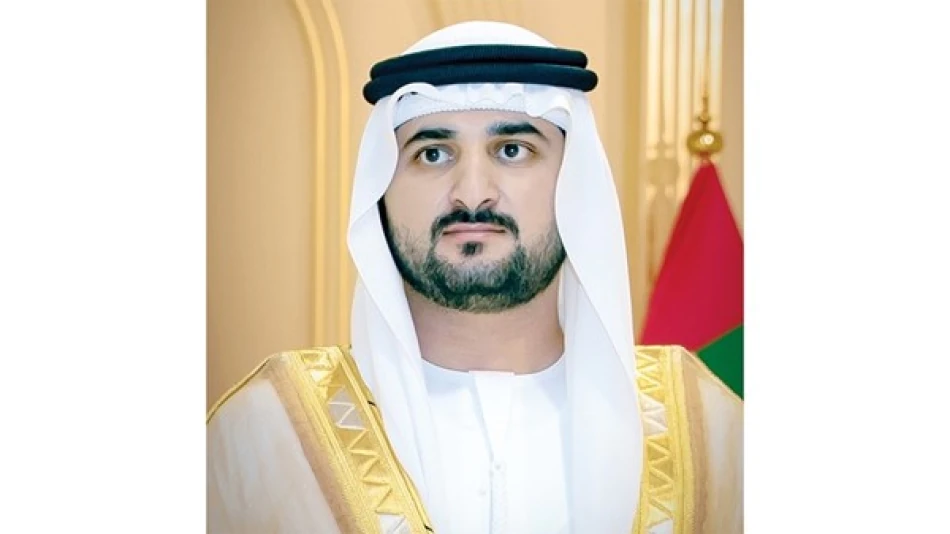
Sheikh Maktoum's Budget Priorities: Education, Healthcare, Community, and Public Services
UAE Unveils Strategic Budget Blueprint Targeting Global Competitiveness Through 2029
The UAE has launched its federal budget cycle for 2027-2029, marking a decisive shift toward strategic public spending that prioritizes education, healthcare, and social benefits as pillars of long-term economic competitiveness. The announcement signals the Emirates' commitment to transforming government budgeting from administrative necessity into a strategic tool for global leadership, aligning with the nation's ambitious "UAE Centennial 2071" vision.
Strategic Priorities: Beyond Oil Revenue Diversification
Sheikh Maktoum bin Mohammed bin Rashid Al Maktoum, Dubai's First Deputy Ruler and UAE Finance Minister, emphasized that the new budget cycle will focus on empowering government entities to deliver high-quality services across critical sectors. This approach reflects a broader Gulf trend where resource-rich nations are investing heavily in human capital and institutional capacity to reduce dependence on hydrocarbon revenues.
The timing coincides with the launch of the federal government's new strategic planning cycle aimed at achieving the "We the UAE 2031" vision, creating a synchronized approach between long-term planning and fiscal allocation that mirrors successful models in Singapore and South Korea.
Global Competitiveness Through Strategic Budgeting
Institutional Transformation
The UAE's emphasis on transforming its federal budget into a strategic instrument for enhancing global competitiveness represents a sophisticated evolution in public finance management. Unlike traditional budget cycles that focus primarily on operational expenses, this approach treats fiscal planning as a competitive advantage tool.
This methodology aligns with best practices observed in Nordic countries, where strategic budgeting has consistently supported high rankings in global competitiveness indices. The UAE's approach suggests recognition that sustained economic leadership requires systematic investment in institutional capacity rather than project-based spending.
Long-term Vision Integration
The explicit connection between the 2027-2029 budget cycle and the UAE Centennial 2071 objectives demonstrates unprecedented long-term fiscal planning in the region. This 50-year horizon approach mirrors China's strategic planning model while adapting to the UAE's unique position as a global hub for trade, finance, and innovation.
Regional and Global Implications
The UAE's strategic budgeting initiative positions the nation ahead of regional competitors in institutional development. While Saudi Arabia's Vision 2030 focuses heavily on mega-projects and economic diversification, the UAE's approach emphasizes service delivery quality and governmental efficiency as competitive differentiators.
For international investors and multinational corporations, this signals a maturing governance framework that prioritizes predictable, high-quality public services over flashy infrastructure projects. The focus on education and healthcare particularly appeals to knowledge economy sectors that require skilled workforces and robust support systems.
Market Perspective: Sustainable Growth Model
From an investment standpoint, the UAE's strategic budgeting approach suggests a shift toward sustainable growth models that rely less on external factors and more on institutional strength. This transition could enhance the Emirates' appeal to ESG-focused investors who prioritize long-term value creation over short-term returns.
The emphasis on empowering young talent within government institutions also indicates a commitment to knowledge transfer and capacity building that could yield significant returns in productivity and innovation over the coming decades.
Most Viewed News

 Layla Al Mansoori
Layla Al Mansoori






